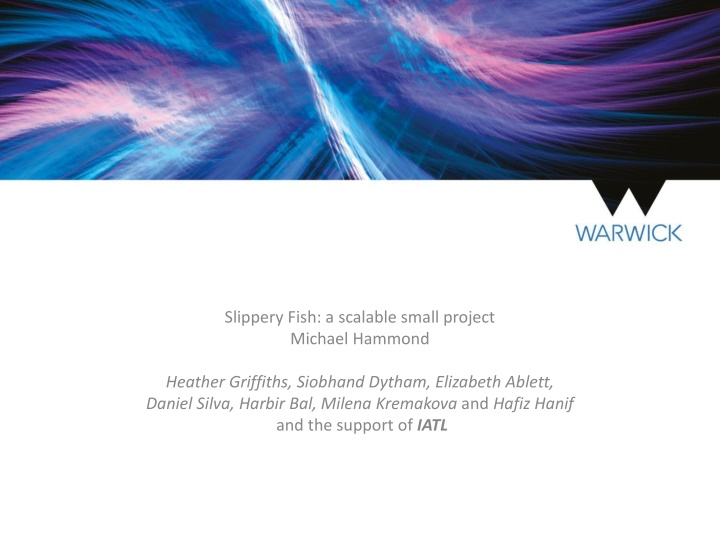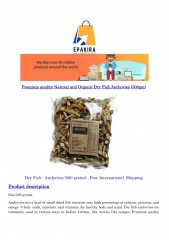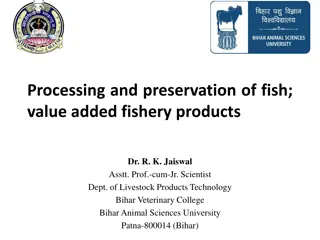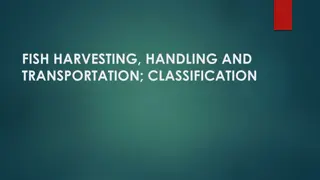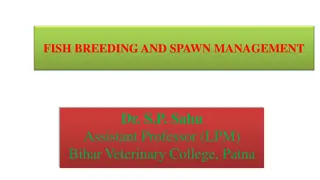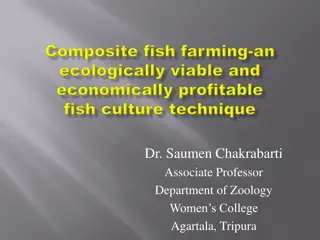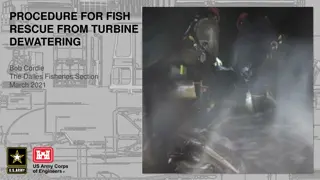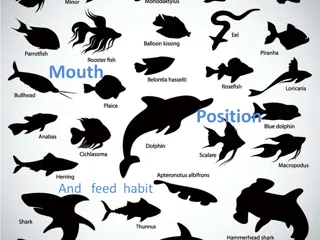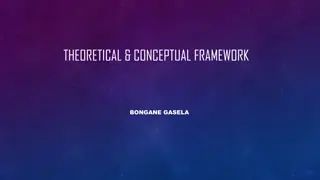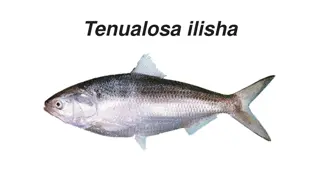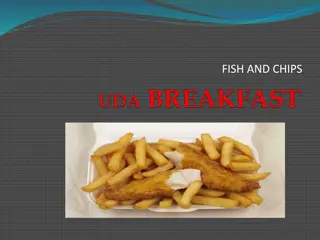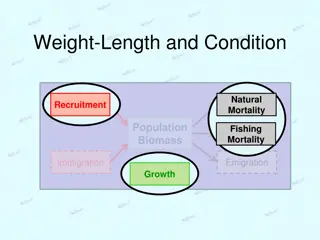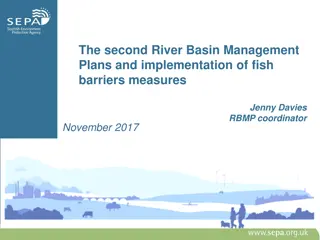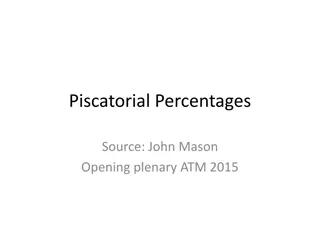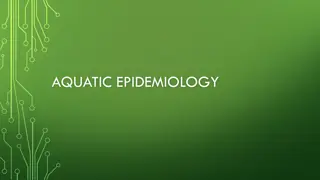Slippery Fish: A Small Project Addressing Theoretical Challenges in Research
Slippery Fish is a scalable small project involving Michael Hammond, Heather Griffiths, Siobhand Dytham, Elizabeth Ablett, Daniel Silva, Harbir Bal, Milena Kremakova, and Hafiz Hanif, with the support of IATL. The project aims to address theoretical challenges in research through phases of action research, involving volunteer research students and exploring new angles on problems like globalisation and interdisciplinary aspects. It emphasizes the importance of understanding, planning, and designing to present diverse perspectives and keep within budget, ultimately aiming for growth and community engagement.
Uploaded on Sep 13, 2024 | 4 Views
Download Presentation

Please find below an Image/Link to download the presentation.
The content on the website is provided AS IS for your information and personal use only. It may not be sold, licensed, or shared on other websites without obtaining consent from the author.If you encounter any issues during the download, it is possible that the publisher has removed the file from their server.
You are allowed to download the files provided on this website for personal or commercial use, subject to the condition that they are used lawfully. All files are the property of their respective owners.
The content on the website is provided AS IS for your information and personal use only. It may not be sold, licensed, or shared on other websites without obtaining consent from the author.
E N D
Presentation Transcript
Slippery Fish: a scalable small project Michael Hammond Heather Griffiths, Siobhand Dytham, Elizabeth Ablett, Daniel Silva, Harbir Bal, Milena Kremakova and Hafiz Hanif and the support of IATL
I would like to talk about Seeing a problem Understanding the problem Planning Design of material Evaluating
Seeing a problem Problem in our case is theory. Different versions of theory eg modelling, causality, social construction .. Cloudy relationship with natural science Different disciplinary traditions eg experimental research, counterfactual thinking Social theory v sociological theory Theory v theorising ie theory about research Game playing Theory: sacred or profane A good thesis but under-theorised
A small project to address this To involve volunteer research students Conceptualised as phases in action research in practice looser Aware of other resources Supported by IATL
Understanding the problem Confirmatory interviews with and beyond team Small audience some at a distance New angles on the problem: globalisation, language, discipline and inter disciplinary What works? exemplars, concrete issues discussion What does not work opaque, highly abstract, game playing
Planning: what does it need to do Raise rather than answer every issue Present different voices Select cross disciplinary examples Provide a frame Allow for flexibility Keep to budget not a Mooc Involve research students from the start
Design and implementing Iterative design Use of different media Site Builder + investigating Moodle Balance between instructional and open material, curating a key metaphor Idea of slippery fish throughout
Components This is theory for me Book group Discussion forum User guide Community Work in progress at: http://www2.warwick.ac.uk/fac/soc/ces/research/curr ent/socialtheory/ Can grow with student or tutor input
Where to be used? How will it work in practice? Advanced core training (next week), flipped idea Incorporated into research methods (Education) - model for at a distance research training Incorporated into core training
Evaluation Initial feedback Metaphor works, importance of issue absolutely clear Idea of curating material works but won t work for everyone (stick to principles?) Small things are well received eg personalised greeting, recommended for you
Reflections Go for the most challenging? Use of video scarier than imagined Cross disciplinary challenging Opportunity and challenge in working with others Openness versus direction playing safe Small can be powerful Flexibility opportunity / challenge
Thanks Team IATL
